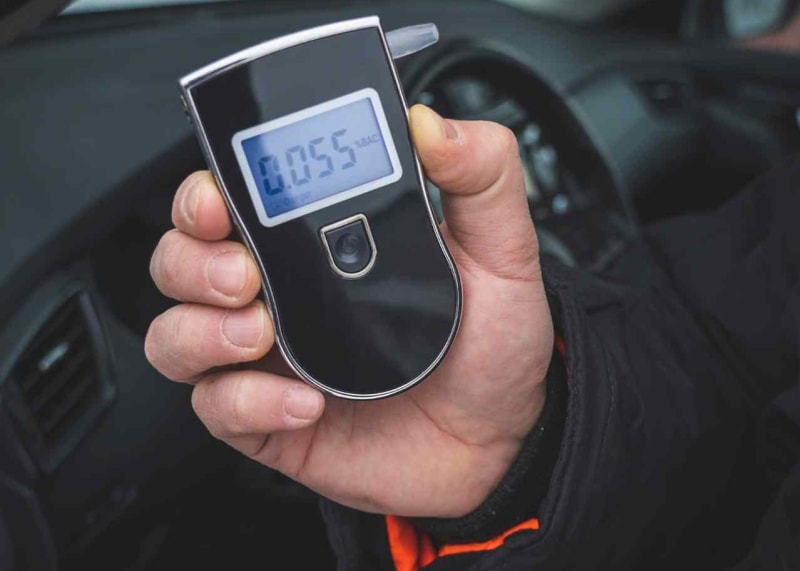Facing criminal charges for driving under the influence of alcohol can be a scary and confusing experience. A drunk driving offense becomes even more stressful when complicated by additional violations. If you are currently being charged for violating the Illinois implied consent law, you may have many questions about your situation. What is implied consent? Am I required to take a chemical test? What happens if I don’t? Here we answer common questions about the implied consent law in Illinois and how it may affect your future.
What Is Implied Consent?
Implied consent is a law upheld by many states across the U.S., Illinois being one of them. Implied consent is the assertion that if you choose to operate a motor vehicle on Illinois state roads then you have consented to the chemical testing of your breath, urine, or blood for the purpose of evaluating your blood alcohol content. In simple terms, by driving on state roads you have agreed to have your blood alcohol concentration levels tested.
But I never gave consent, how can they say that? Because the state has BAC limits for all drivers, it is assumed that anyone driving on Illinois roads is operating within the legal limit. The state retains the right to chemically test any driver to ensure they are complying with the law. Therefore, by getting behind the wheel, it is implied that you have agreed to this law.
If I Am Arrested for DUI in Illinois, Am I Required to Take a Chemical Test?
The technical answer to this question is no. You are not required to take a chemical test after being arrested under suspicion of driving while intoxicated. However, refusal is seen as a violation of the implied consent law and has immediate consequences.
When a law enforcement officer pulls someone over the suspicion of driving under the influence, they may issue a field sobriety test. If the driver fails the roadside assessment, the officer can lawfully arrest them for DUI and then administer a chemical assessment.

Chemical testing includes breathalyzer tests that may be administered on the scene, urine tests that may be given at the police station, or blood tests that are sent off to a police lab. While breathalyzers only test for concentration of alcohol, urine and blood chemical tests also detect other substances. The presence of THC or other illicit drugs can also warrant a DUI conviction, not just alcohol.
What Are the Penalties for Refusing to Take a Chemical Test?
Refusing to submit to a chemical test can have a greater negative impact on your DUI case than simply failing the test. This is because the court assumes the driver knew they were intoxicated and chose to drive anyway.
Illinois enacts statutory summary suspension for drivers who are lawfully arrested for DUI charges. A statutory summary suspension is the automatic loss of driving privileges that goes into effect 45 days after the arrest date. The 45-day window gives the offender time to challenge their arrest and prepare for the changes to their lifestyle and responsibilities. A driver who refuses a chemical test will face longer suspension periods than a driver who tested and failed.
First-time offenders who fail a chemical test are subject to a 6-month suspension. First-time offenders who refuse to test are subject to a 12-month suspension. Second-time and subsequent DUI offenders who fail are subject to a 12-month driver’s license suspension, while those who refuse face a 3-year automatic license suspension.
Beyond the loss of driving privileges, refusal to submit can carry additional consequences. In some DUI cases, a driver may be eligible for a restricted permit or a breath alcohol ignition interlock device. People who refuse to submit to a test are automatically ineligible for this program. Additionally, violators of the implied consent law can be punished by being responsible for the medical cost of blood testing ($500).
Another major impact of refusal is that it can fare very poorly for your DUI court case.
Impact of Refusal on the DUI Case
Outside of license suspension, ineligibility for restricted programs, and additional fees and costs, refusal can negatively affect your DUI case. The arresting officer may use the refusal as evidence to convict, citing that the driver knew they were under the influence of drugs or alcohol and the refusal was thereby an admission of guilt. The prosecutor could argue that by refusing, the driver was attempting to conceal evidence. As demonstrated by the potential legal consequences, judges can treat refusal cases more harshly.
If you are facing criminal charges for violating implied consent laws in the state of Illinois, contact a criminal defense lawyer to help you obtain a favorable outcome. An experienced attorney will review your case, build a strong defense, support you through the legal process, and help you receive a lesser punishment. Contact the Rolling Meadows DUI defense lawyers at Dohman Law Group today to begin your free consultation.


